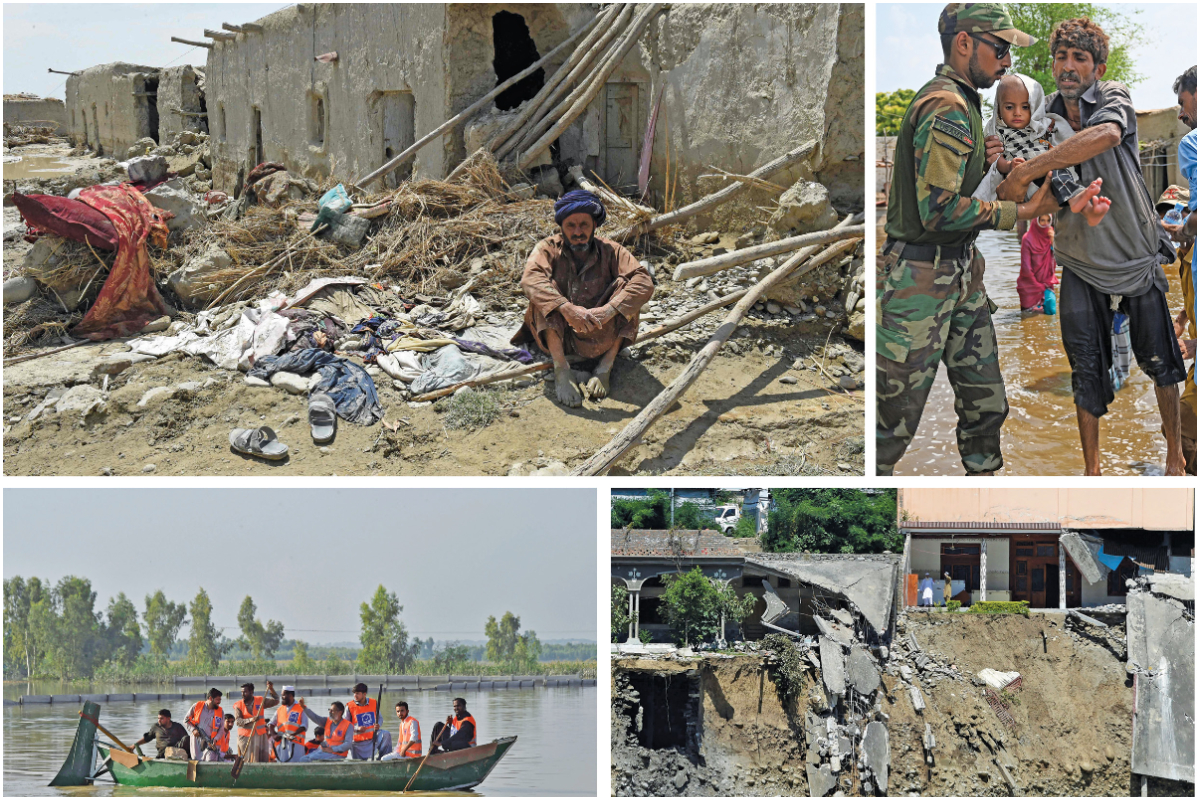
From Bad to Worse
According to UN humanitarian coordinator, insufficient aid for flood victims could lead to famine
Islamabad: The direct losses from floods appear to have ceased due to the end of the monsoon season, and the National Disaster Management Authority (NDMA) has also suspended issuing its daily situation report, but flood victims continue to face a slew of other issues due to a lack of funds.
According to a UN report, only 20 per cent of the $816 million requested through the Flood Response Plan, which was launched in October, has been received so far, amounting to $171.5 million.
As a result of the heavy rains and flooding, over 1,739 people have died, including 647 children, and 12,867 have been injured, including 4,006 children. The NDMA stated in its report that more than 2.3 million houses were damaged, nearly 900,000 were completely destroyed, and approximately 33 million people were affected by the floods.
As per the UN report, heavy floods displaced an estimated 7.9 million people.
Some people have returned as flood waters begin to recede in some areas. However, it is not yet safe for everyone. When people return, they find severely damaged homes and villages and require assistance to begin rebuilding their lives, the UN report further stated.
Amena Kamaal, United Nations Humanitarian Coordinator and Pakistan Spokesperson, told Bol News that while $200 million to $250 million in financial assistance has been pledged for flood victims, only $178 million has been received thus far, which is insufficient to meet the demands.
She said that the UN and other humanitarian organisations had requested $816 million to assist flood victims.
“If the necessary funds are not made available in a few months, there will be a food security issue for the victims,” she added.
According to her, $816 million is required to meet the flood victims’ lifesaving needs. She stated that massive floods in Pakistan have affected 33 million people, with 9.5 million of them being prioritised as requiring assistance for survival.
She said that these people are receiving nutrition, shelter, food, and washing facilities.
Kamaal further maintained that the government has reported $30 billion in flood-related losses, which include economic losses, infrastructure losses, agricultural land losses, and so on.
“The response to the $816 million appeal may be inadequate in comparison to the actual needs. The government and humanitarian agencies are also working to provide relief, but the needs are too great,” she lamented.
“Sindh’s nutrition level was already deplorable, and now, following the floods, residents are in phase IV of a food emergency. Food security has five phases, and millions of people are currently living in phase IV,” she noted.
“If timely assistance is not provided, the tragedy of famine will occur. People are living in the open air because they have lost their means of livelihood. They are currently reliant on assistance,” Kamaal explained.
She claimed that women and children were particularly vulnerable in the current situation.
“There have been reports of children dying within two days of contracting diarrhea. They are already malnourished, and if they contract a disease, they will be unable to resist it due to their low immunity level,” she observed.
She stated that in District Dadu, there are areas where the water is still standing and others where it has begun to recede.
She added that things have become more complicated in areas where the water is receding because boats cannot be towed through it, and access to these areas has become difficult.
“Even getting a glass of clean water is difficult for the affected people. To obtain a glass of potable water, they must swim or walk through standing water,” she continued.
She stated that flood victims in every province face problems and challenges that may vary depending on their geographical location.
Kamaal remarked that flood victims in Khyber Pakhtunkhwa (KP) are suffering from harsh winters, whereas flood victims in Sindh are suffering from standing floodwater. She claimed that the areas of Balochistan bordering Sindh are experiencing similar problems.
She added that the other flood-affected areas of Balochistan are also dealing with the challenges of the harsh winter season.
She further said that there are areas in Sindh where the water has completely receded and that the government has provided seeds for cultivation. However, she added that floodwaters remain in many parts of Sindh and that there is no hope of them receding in three to four months.
The UN humanitarian coordinator also asserted that the challenges are too large to be met without outside assistance.
Catch all the National Nerve News, Breaking News Event and Latest News Updates on The BOL News
Download The BOL News App to get the Daily News Update & Live News.












 Read the complete story text.
Read the complete story text. Listen to audio of the story.
Listen to audio of the story.